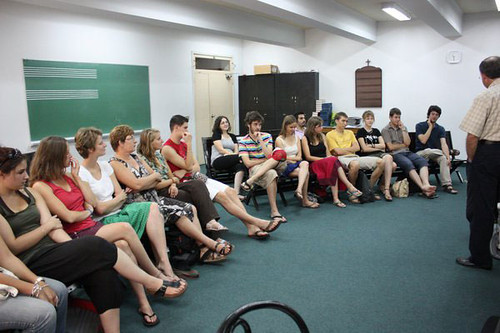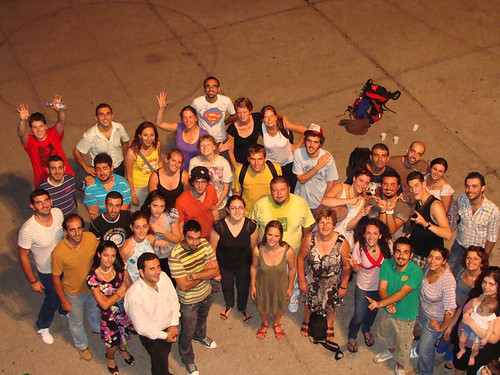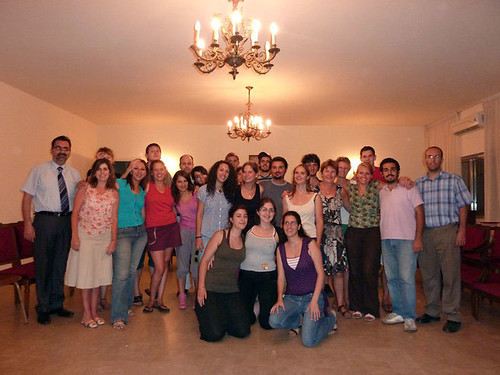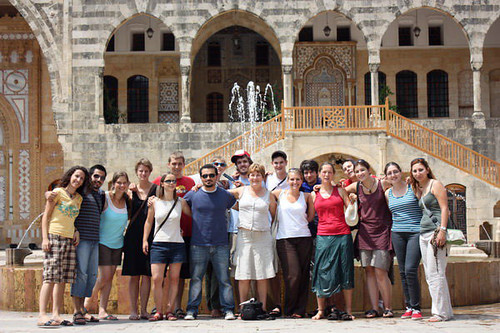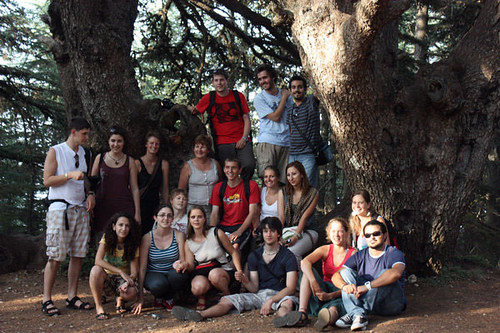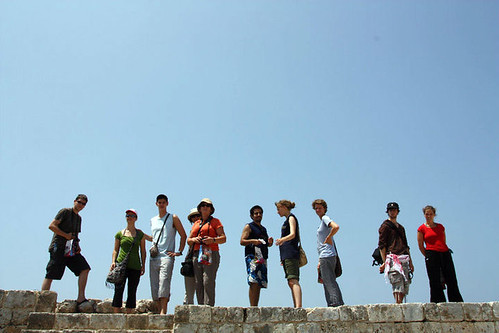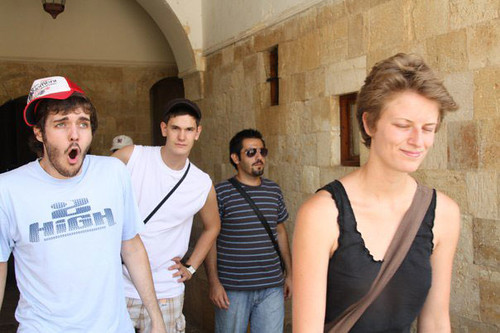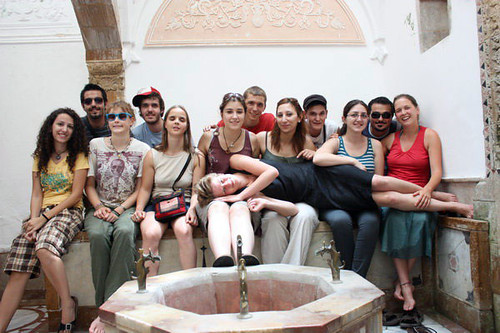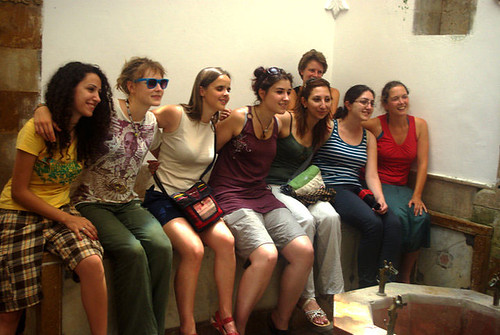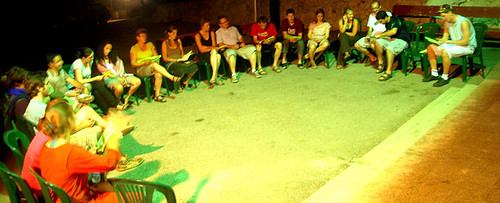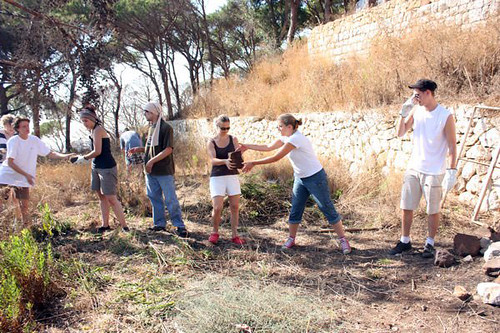Bourj Hammoud
A Busy Town Longing to Breathe
2010 has been declared the International Year of Biodiversity. The Armenians have also chosen this year to be the Year of the Woman.
The two vital elements, the female and biodiversity, are important pillars of the existence and development of all kinds of life on our planet: the female creates and shapes lives; biodiversity ensures the sustainability of life. It is these two important facts that are behind the grand decision of the Bourj Hammoud artisans to celebrate and participate in the Garden Show & Spring Festival 2010.
Nature, much like a fertile woman, carries the secret and the power to generate life. The interactions between factors that transfuse life into nature play an important role in regenerating life and ultimately in the preservation of the biodiversity. This requires the protection of animal and plant species as well as the sustainable development of cities, while also respecting the cultural heritage of such life.

With the rapid expansion and development of Bourj Hammoud and its neighboring areas, almost all the cultivated green areas – the wild plants and large trees, such as mulberry – have all but disappeared. The blue of the sea and the flowing river have been shunned from the urban landscape. The area itself has become densely populated and human activity in all of its guises, from coastal industries to urban decay and traffic, has imposed negatively upon the environment. Yet, the area itself and its people have managed to retain an atmosphere of hospitality.
To this very backdrop and keeping in mind the very people for whom it is responsible, the Municipality of Bourj Hammoud has adopted the following action plan:
• Reintroduction of nature into the city by creating playgrounds for children, planting the sidewalks and the beautification of central squares.
• Establishing a sustainable development strategy that addresses socio-economic and environmental issues.
• Development of a comprehensive master plan for the seafront and the coastal area to avoid the development of polluting industries and to provide quality public spaces for leisure, cultural and touristic activities to the inhabitants of the region.
In this spirit, our exhibition area at The Garden Show & Spring Festival 2010 emphasizes the importance of factors which contribute to the preservation of biodiversity. It includes spaces for animal and vegetal world as well as the cultural heritage of Bourj Hammoud district which carries aesthetic and moral values and is where the Armenian woman acquires an essential place.
Arpi Mangassarian
Chief of Technical & Urban Planning Office
Bourj Hammoud Municipality
A Busy Town Longing to Breathe
2010 has been declared the International Year of Biodiversity. The Armenians have also chosen this year to be the Year of the Woman.
The two vital elements, the female and biodiversity, are important pillars of the existence and development of all kinds of life on our planet: the female creates and shapes lives; biodiversity ensures the sustainability of life. It is these two important facts that are behind the grand decision of the Bourj Hammoud artisans to celebrate and participate in the Garden Show & Spring Festival 2010.
Nature, much like a fertile woman, carries the secret and the power to generate life. The interactions between factors that transfuse life into nature play an important role in regenerating life and ultimately in the preservation of the biodiversity. This requires the protection of animal and plant species as well as the sustainable development of cities, while also respecting the cultural heritage of such life.

With the rapid expansion and development of Bourj Hammoud and its neighboring areas, almost all the cultivated green areas – the wild plants and large trees, such as mulberry – have all but disappeared. The blue of the sea and the flowing river have been shunned from the urban landscape. The area itself has become densely populated and human activity in all of its guises, from coastal industries to urban decay and traffic, has imposed negatively upon the environment. Yet, the area itself and its people have managed to retain an atmosphere of hospitality.
To this very backdrop and keeping in mind the very people for whom it is responsible, the Municipality of Bourj Hammoud has adopted the following action plan:
• Reintroduction of nature into the city by creating playgrounds for children, planting the sidewalks and the beautification of central squares.
• Establishing a sustainable development strategy that addresses socio-economic and environmental issues.
• Development of a comprehensive master plan for the seafront and the coastal area to avoid the development of polluting industries and to provide quality public spaces for leisure, cultural and touristic activities to the inhabitants of the region.
In this spirit, our exhibition area at The Garden Show & Spring Festival 2010 emphasizes the importance of factors which contribute to the preservation of biodiversity. It includes spaces for animal and vegetal world as well as the cultural heritage of Bourj Hammoud district which carries aesthetic and moral values and is where the Armenian woman acquires an essential place.
Arpi Mangassarian
Chief of Technical & Urban Planning Office
Bourj Hammoud Municipality



